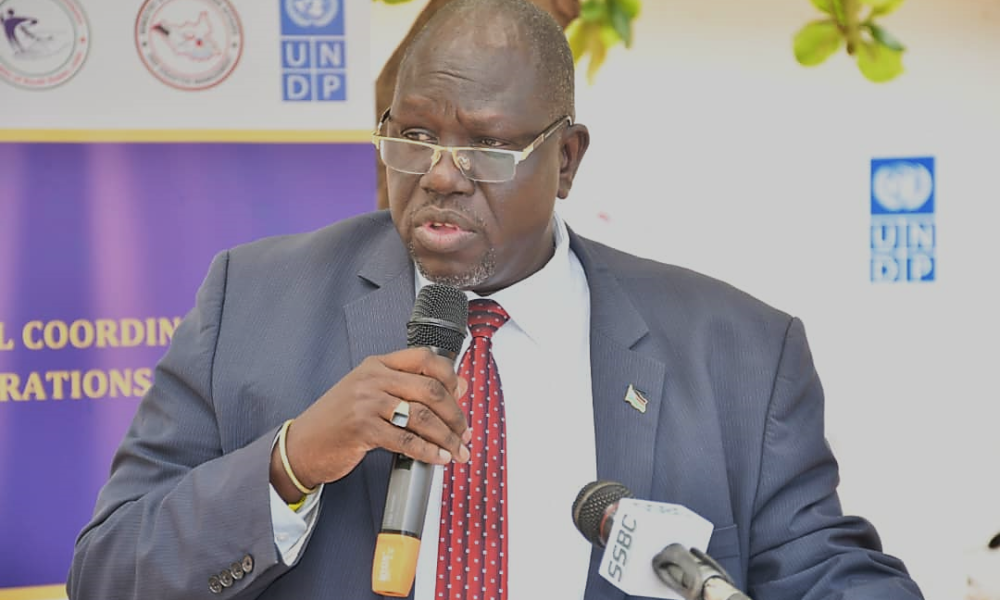By William Madouk
At least nine million people in South Sudan are staring at an ugly food crisis, said Gatwech Peter Kulang, the chairperson of the Relief and Rehabilitation Commission (RRC).
According to him, more than half of those facing hunger pangs are women and children.
“This year [2024], nine million people in South Sudan are in need of humanitarian aid and protection. More than 50 percent are women and children,” he said at the launch of the National Coordination and Operation Centre (NCOC).
He said that although the country is relatively calm, like many countries, South Sudan is shouldering a disproportionate share of the burden of the climate crisis, with deep and long-lasting consequences.
“For the past couple of years, South Sudan has persistently experienced multiple, concurrent climate-induced disasters, like perennial floods and droughts,” Kulang added.
“Each year, for five years (2019–2023), above-average rainfall and localized drought-like conditions have disrupted agriculture, exacerbated food security, and affected approximately 1 million people each of these years,” he explained.
Mr. Kulang emphasized that the negative impact of climate change did not spare humanitarian responses such as impassable roads, flooded airstrips, and difficult physical access to affected communities.
Furthermore, he lamented the limited supply and funding that hindered the delivery of life-saving assistance to communities affected by climate change and other shocks.
“And in addition to these persistent, communal conflicts and economic pressures, they continue to overlap with climate disasters, disease outbreaks, and other factors as a significant driver of humanitarian needs in the country,” he affirmed.
He assured that two documents to tackle humanitarian matters in the country are in their final stages.
“The South Sudan National Action Plan for Return and Integration and the RRC Strategic Plan 2024–2027 are in their final stages and will soon be presented to you (VP Nyandeng) and other stakeholders,” he stated.
According to the RRC boss, South Sudan should not be forever in humanitarian mode and thus must transit to the humanitarian-development nexus championed by the UN in the country, like the UNDP and UNHCR.
According to the 2023 INFORM Risk Index, South Sudan ranks second most vulnerable to natural hazards globally and among the top five countries most vulnerable to the impact of climate change.




